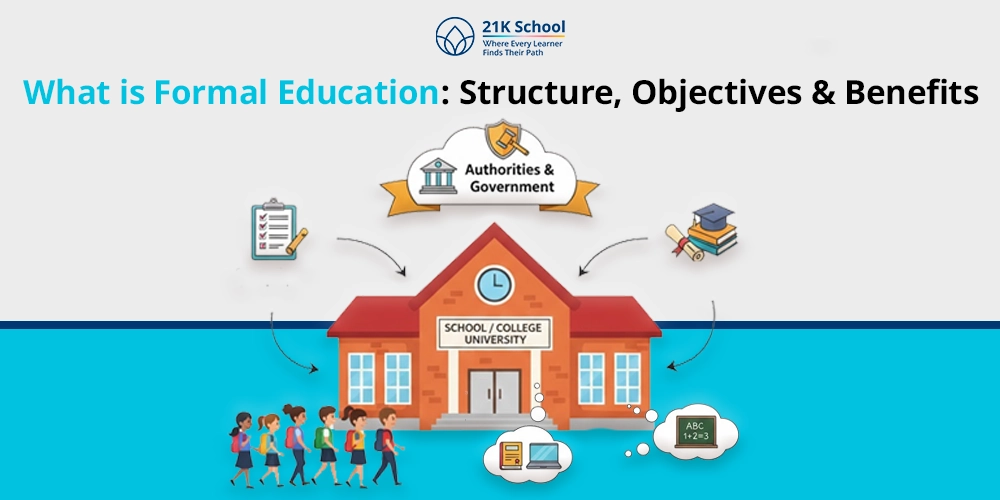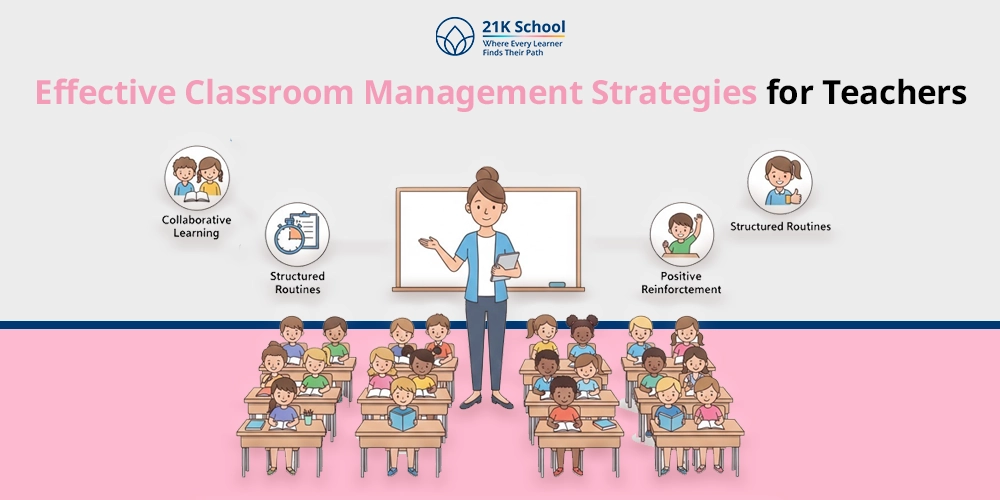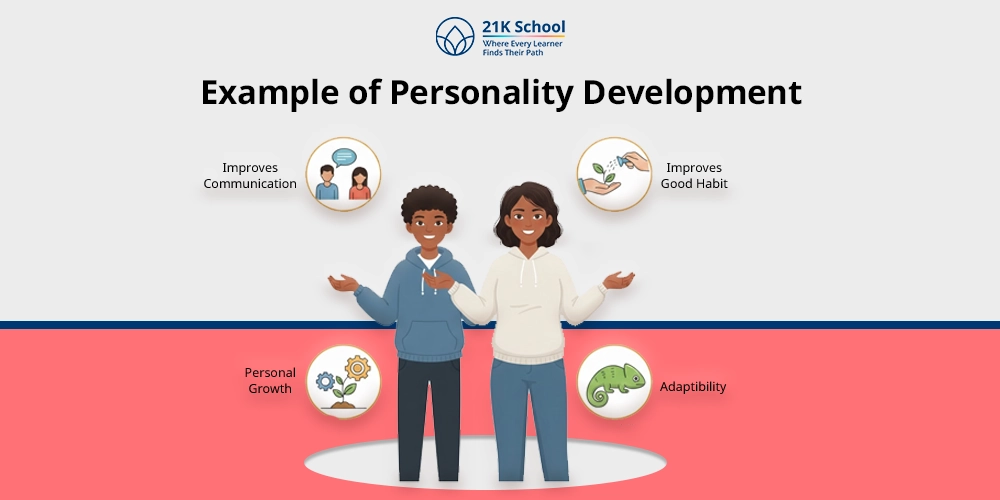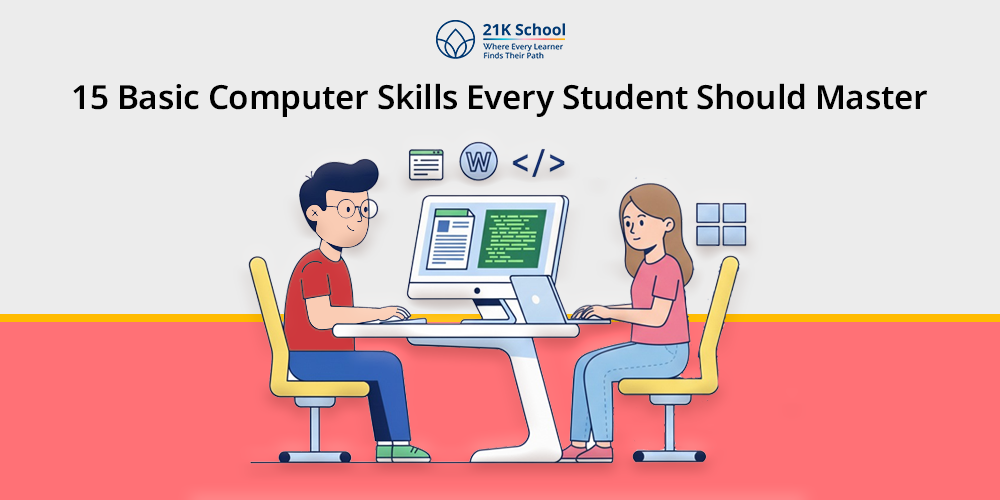
In today’s digitized era, learning computers is no longer an optional skill, it is a mandatory education each student must have.
But have you ever thought where to start from?
Yes, the question is tricky but let me tell you basic computer skills is today’s need and every student should master it effectively.
As a student at a very young age mastering computer skills is beneficial for lifelong learning.
In this blog, we will continue exploring the basic computer skills every student needs to learn for growth and meeting modern targets.
What are Basic Computer Skills?
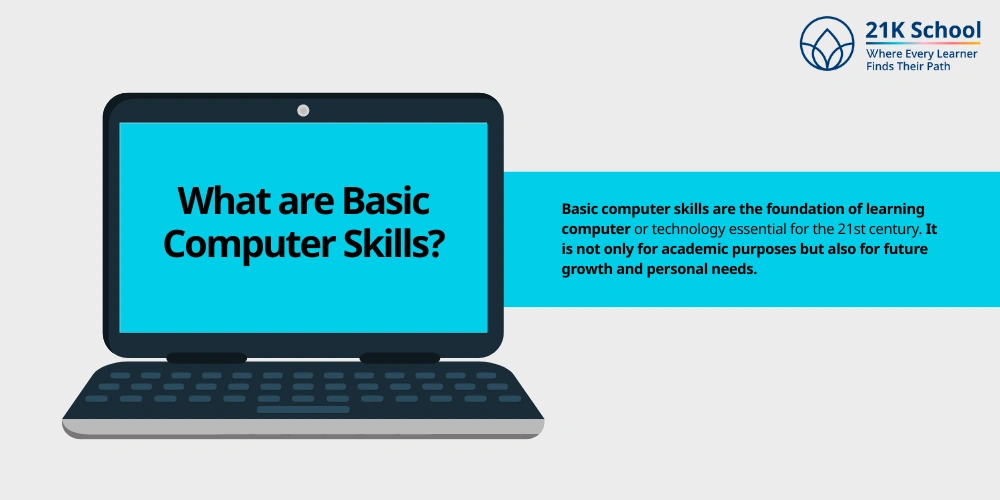
Basic computer skills are the foundation of learning computer or technology essential for the 21st century. It is not only for academic purposes but also for future growth and personal needs.
Basic computer skills include understanding how to operate computer software, resolve problems, connect and communicate effectively.
There are different generations of computers you should know as a basic computer skill.
It is an ideal way to prepare students for future use and even jobs related to research, IT, accountancy and many more.
15 Basic Computer Skills for Students
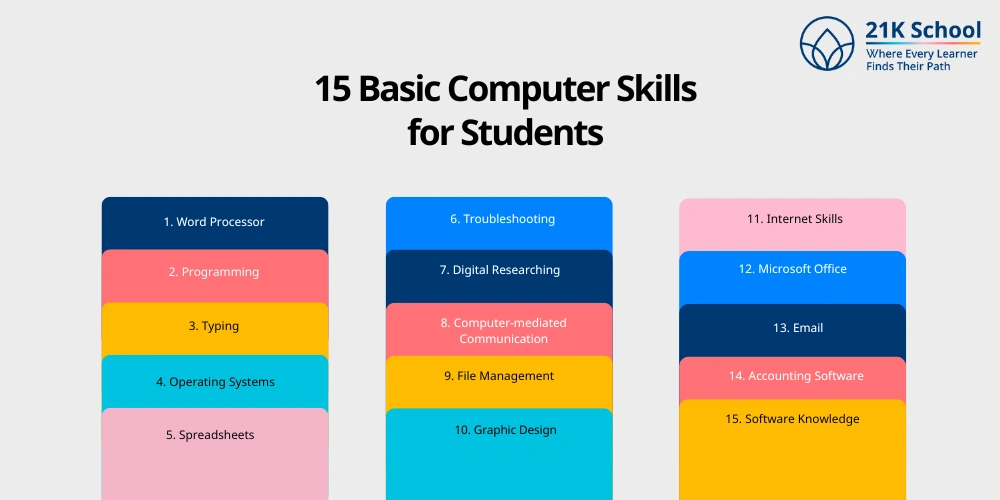
Let’s understand of 15 basic computer skills student must know as a beginner stage:
1. Word Processor
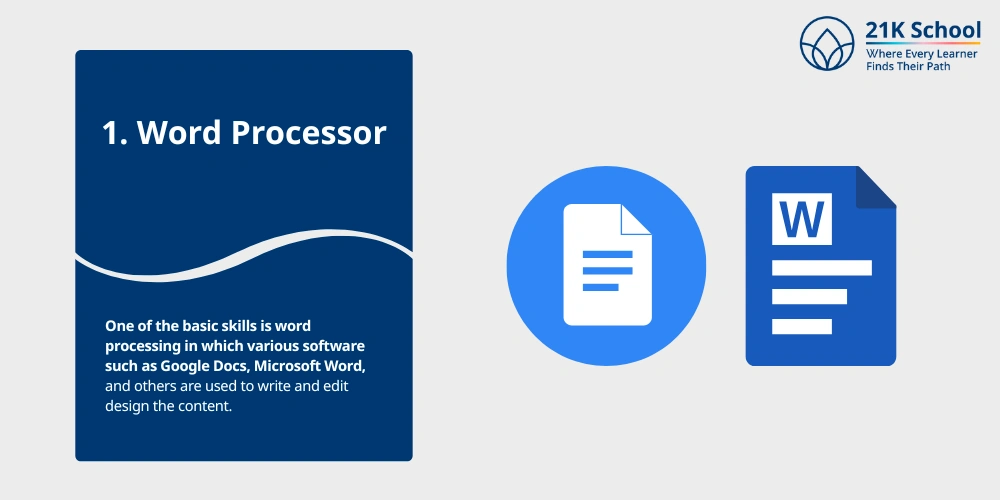
One of the basic skills is word processing in which various software such as Google Docs, Microsoft Word, and others are used to write and edit design the content.
Individuals who want to write essays, prepare a presentation or make an attractive resume. It is beneficial to present work neatly and clearly.
- Kids can text with headings, bullet points, and styles.
- Use various templates for professional documents.
- Using tables, images, and hyperlinks.
- Grammar and spelling correction.
2. Programming
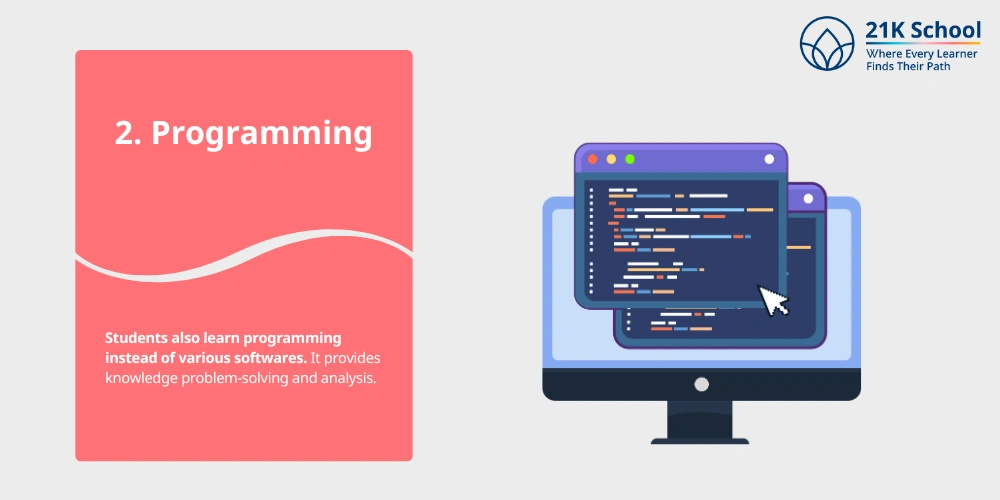
Students also learn programming instead of various softwares. It provides knowledge problem-solving and analysis.
Python, JavaScript and Scratch programming, are some common programming languages to start with.
- This will enhance logical reasoning and help understand how software and apps work.
- Programming encourages creative thinking through making projects or games.
3. Typing
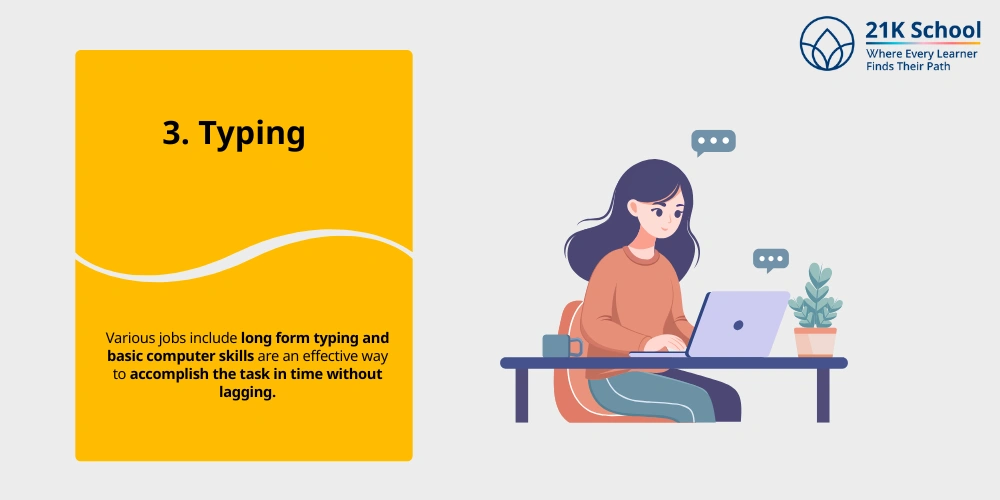
Various jobs include long form typing and basic computer skills are an effective way to accomplish the task in time without lagging.
Students can save their projects or assignments, write a daily diary or make, study routine, target versus achieved list etc.
- Proper finger placement on the keyboard for smooth flow.
- Work on touch typing without looking at the keys.
- Use online typing tutors for improvement.
Remember to write everyday to improve typing skill as soon as possible.
4. Operating Systems
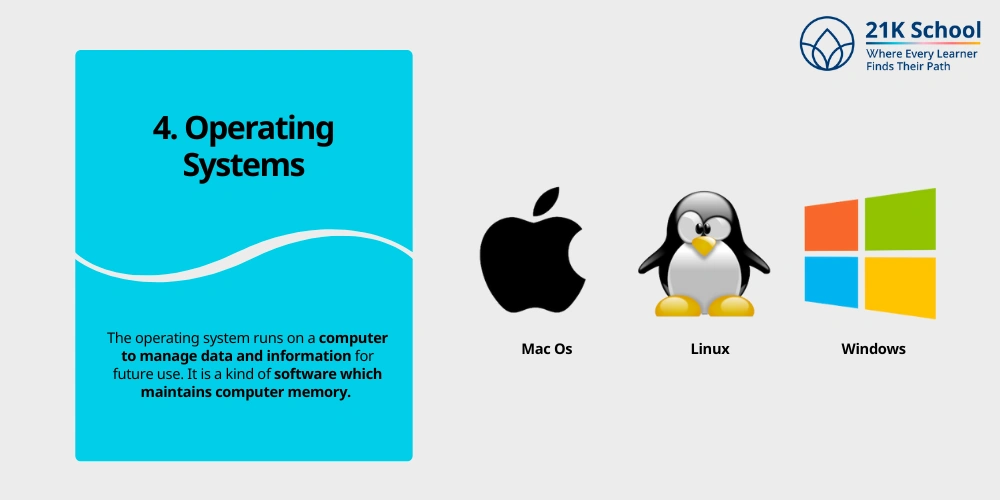
The operating system runs on a computer to manage data and information for future use. It is a kind of software which maintains computer memory.
For example, Windows, Mac OS, and Linux. One must know how to boot up and shut down correctly.
- Explore the desktop, folders, and settings.
- Install and uninstall software easily.
- Manage updates and security features.
5. Spreadsheets
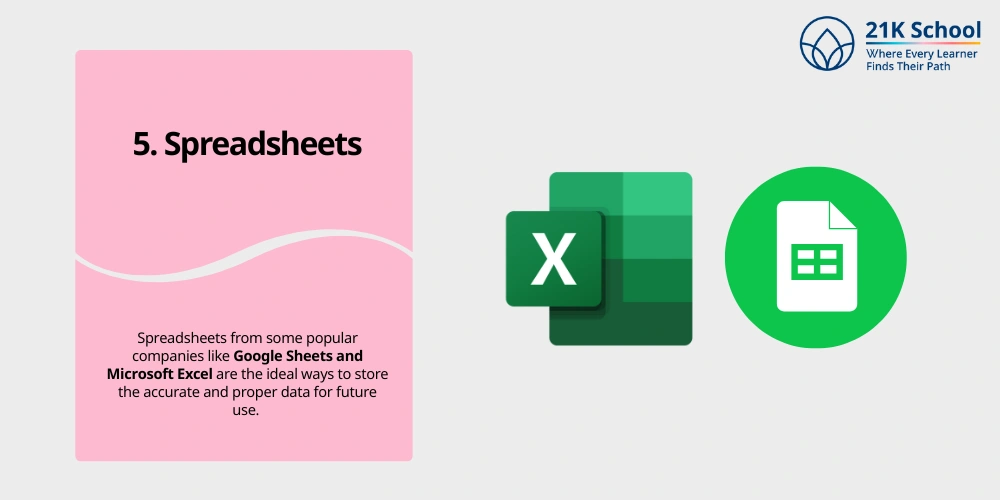
Spreadsheets from some popular companies like Google Sheets and Microsoft Excel are the ideal ways to store the accurate and proper data for future use.
From quick academic assignments to budgeting and big research it is also essential to manage calculations.
- Using formulas and functions.
- Creating charts and graphs.
- Sorting and filtering information.
6. Troubleshooting
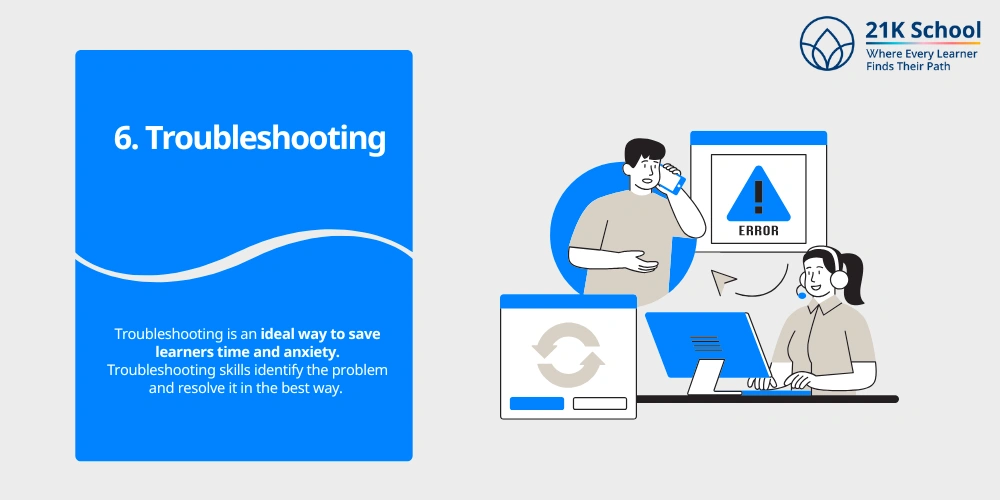
Troubleshooting is an ideal way to save learners time and anxiety. Troubleshooting skills identify the problem and resolve it in the best way.
It is ideal to resolve technical issues learners face.
- Troubleshooting fixes slow performance by clearing cache.
- Resolve internet connectivity problems.
- Updating malfunctioning apps.
- Use of antivirus software to save computers.
7. Digital Researching
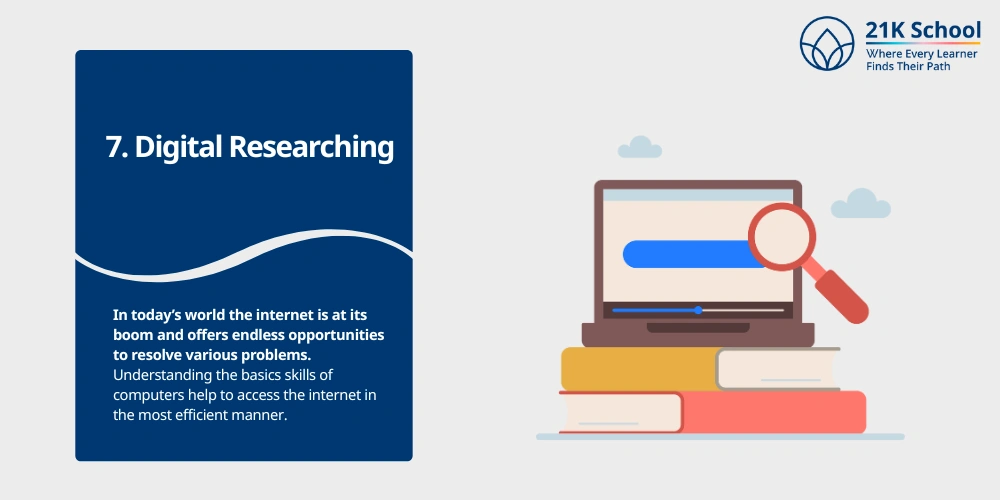
In today’s world the internet is at its boom and offers endless opportunities to resolve various problems.
Understanding the basics skills of computers help to access the internet in the most efficient manner.
By this way learners can improve their research skill and continuous learning.
8. Computer-mediated Communication
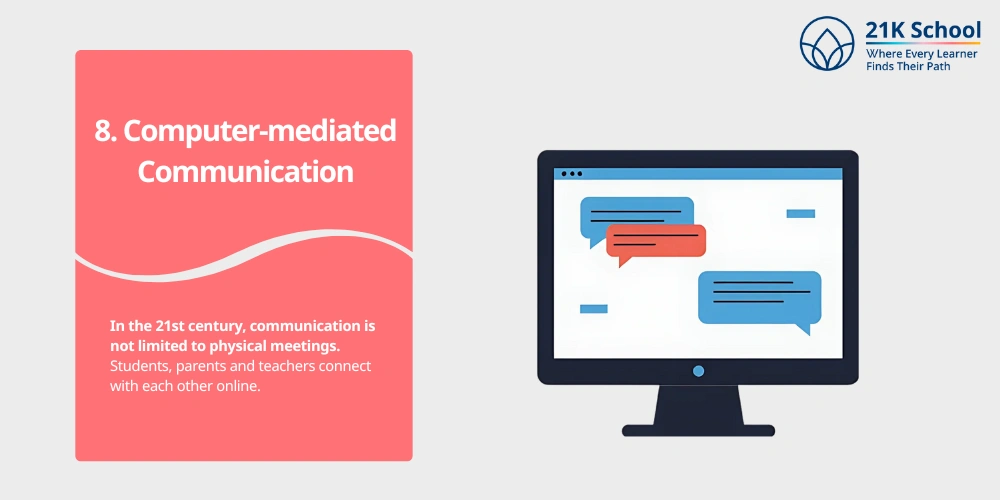
In the 21st century, communication is not limited to physical meetings. Students, parents and teachers connect with each other online.
This easy interaction via the internet requires basic computer skills.
- Writing polite and concise messages.
- Take part in online discussions.
- Collaboration tools such as Microsoft Teams, or Zoom.
- Understanding digital working.
9. File Management
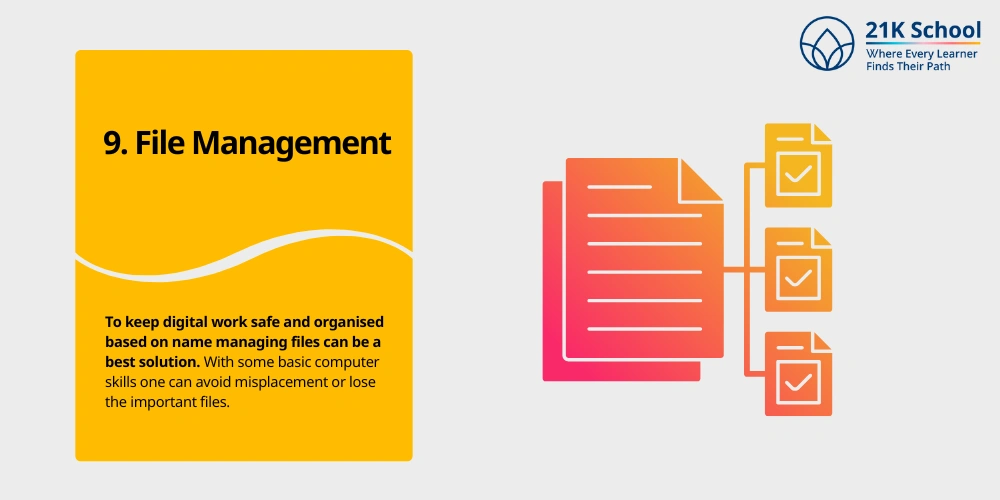
To keep digital work safe and organised based on name managing files can be a best solution.
With some basic computer skills one can avoid misplacement or lose the important files.
- Creating, naming, saving and organising folders.
- Saving files in different formats like in .docx, .pdf, .pptx.
- Backing up data on cloud.
10. Graphic Design
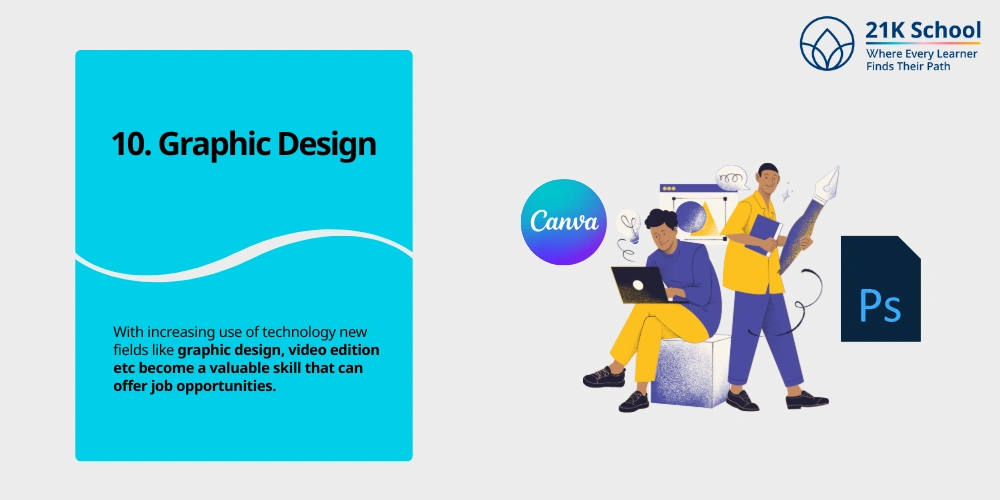
With increasing use of technology new fields like graphic design, video edition etc become a valuable skill that can offer job opportunities.
Different tools including canva, Adobe Photoshop etc are some of the best tools to use.
- Motivate creativity.
- Designing attractive projects.
- Indulge in new patterns and designs.
11. Internet Skills
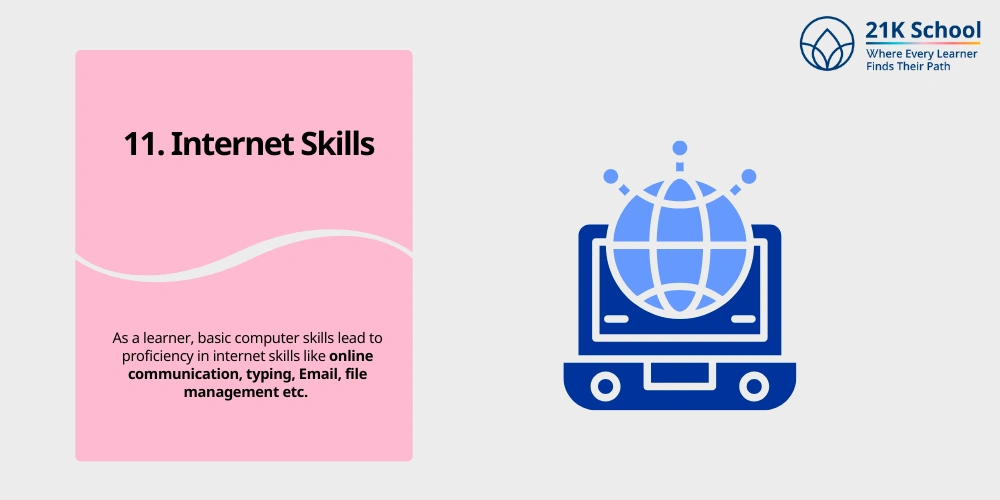
As a learner, basic computer skills lead to proficiency in internet skills like online communication, typing, Email, file management etc.
Learners can explore various things for example educational videos, various new features and e-learning platforms.
Explore how the internet is beneficial for students.
12. Microsoft Office
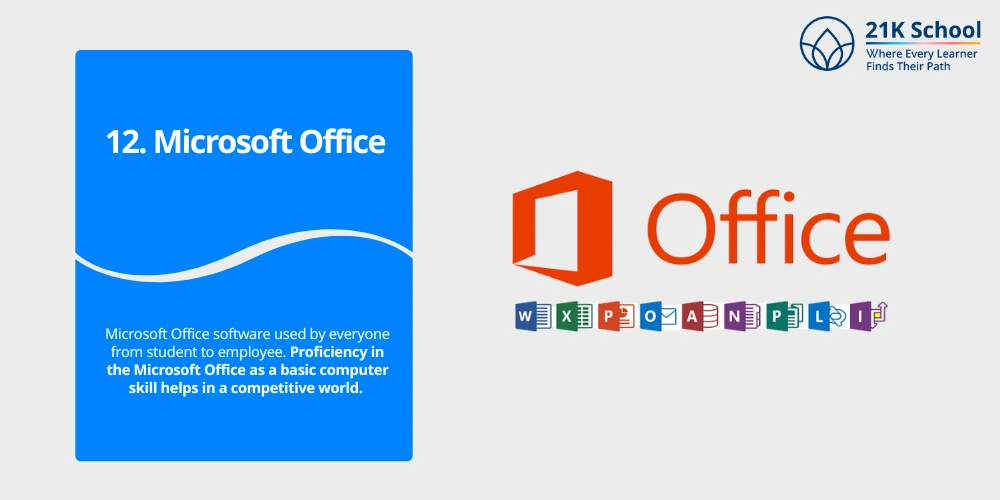
Microsoft Office software used by everyone from student to employee. Proficiency in the Microsoft Office as a basic computer skill helps in a competitive world.
- Word which is used for document creation.
- Excel is useful for data analysis.
- PowerPoint is ideal for presentations.
- Outlook is for email management.
13. Email
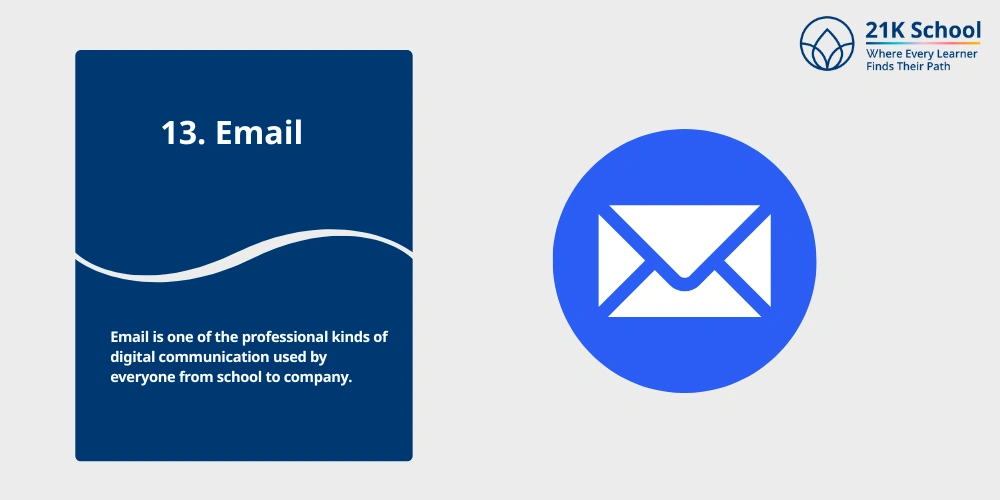
Email is one of the professional kinds of digital communication used by everyone from school to company. There are many advantages of becoming proficient in Email such as:
- Use an email account to get important information.
- Writing and receiving formal and polite messages.
- Sharing documents securely.
- Managing inboxes to review in future.
14. Accounting Software
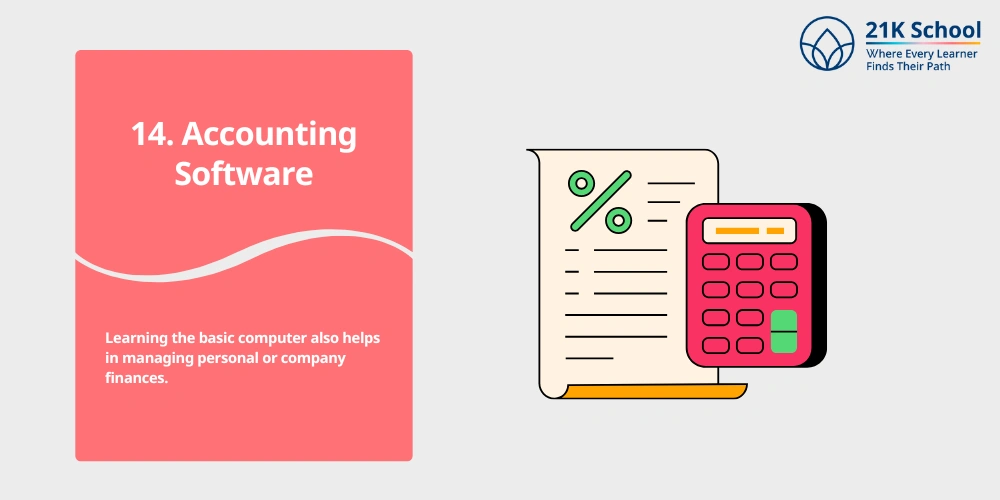
Learning the basic computer also helps in managing personal or company finances.
With various accounting softwares such as Tally, Zoho Books etc one can understand and manage the finances in proper format.
Learning accounting softwares enhances calculation and leads to accuracy while working.
15. Software Knowledge
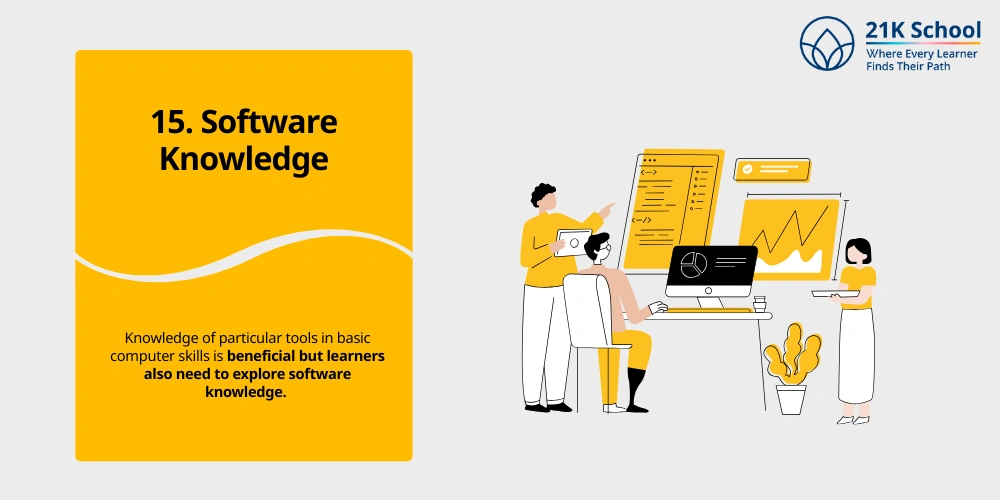
Knowledge of particular tools in basic computer skills is beneficial but learners also need to explore software knowledge.
By understanding:
- Ways to install, update, and uninstall applications.
- Differences between desktop apps and web-based apps.
- Importance of software licenses and open-source tools.
- Safe downloading practices.
Conclusion
Modern education is filled with technology which requires basic to advanced computer skills.
Exploring different computer features from a young age can be beneficial for learning as well as in future for employment.
Basic computer skills help learners to understand the use from learning different languages like Python to creating study timetables. Teaching programming to kids ensures long-term success.
If the kid is a beginner then the above mentioned 15 basic computer skills for students cover the foundation of learning computers.
Starting a new journey of digital literacy must explore how to choose a computer for children.

